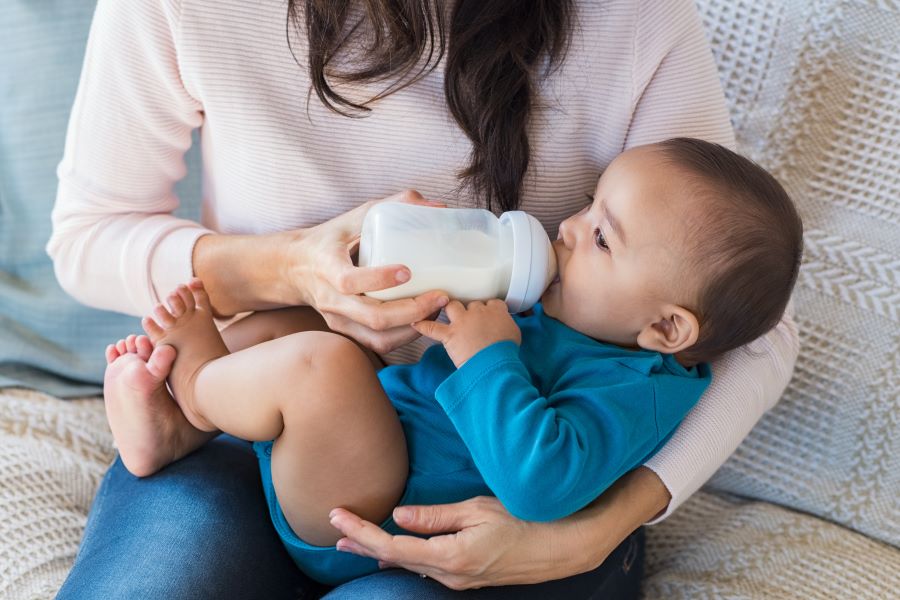Do Foods Really Cause Infant Gas?

Broccoli, beans, cabbage, oh my! These are foods known to cause gas in an adult digestive tract. So it may not come as a surprise that babies have food triggers that cause infant gas as well, even if they don’t actually eat the foods in question.
Foods can cause infant gas, particularly for breastfed babies. This is because the foods a mom takes in can be passed along in terms of taste, nutrients, and more in breast milk. Foods a mom may eat that have been linked with causing an increased risk for infant gas when breastfeeding include:
- Artificial sweeteners
- Broccoli
- Cabbage
- Dairy
- Garlic
- Peanut butter
- Prunes
- Spicy foods
If you notice your baby seems to be gassier than normal after a feeding, it’s possible something you ate could be the culprit. For example, you may notice that your baby may not have a taste for spicy foods or foods that seem to have a lot of garlic.
One of the ways to pinpoint exactly what is causing your baby’s increased gas is to use an elimination diet, providing you get the okay from your child’s pediatrician. You can start by eliminating foods known to cause gas when breastfeeding, including cow’s milk and spicy foods. If your baby’s gas seems to be lessened, something in your diet could be the cause.
To determine exactly what food type causes your baby’s gas, add foods back in slowly, introducing a new food every 3-4 days. If your baby’s gas does not seem to increase, you can add an additional food and keep the milk.
Maintaining a healthy diet for you and baby
While an elimination diet may help you pinpoint a potential food-related source of gas, you shouldn’t ignore the importance of good nutrition when breastfeeding. Unless your doctor tells you otherwise, you will need to take in an extra 500 calories each day as well as drinking enough water.
Remember that foods you take in are just one of the causes associated with infant gas. Other causes include a poor latch around the breast or bottle, extra air from sucking on a pacifier, or after crying. Also, all babies will experience gas due to their small digestive tracts and tendency to swallow air. If your baby seems to experience gas discomfort within a short amount of time after a feeding, this can indicate a food you’re eating may be to blame. Also, the food type that caused gas may stay in your system for 24-72 hours. This means your baby may still have some symptoms for a few days after you eat a gas-inducing food.
Sources:
- Baylor Scott & White
- Intestinal Gas and Gas Pains, Child.
Sutter Health - Nutrition for the Nursing Mother.
Powered by Bundoo® edited by Nabta Team










